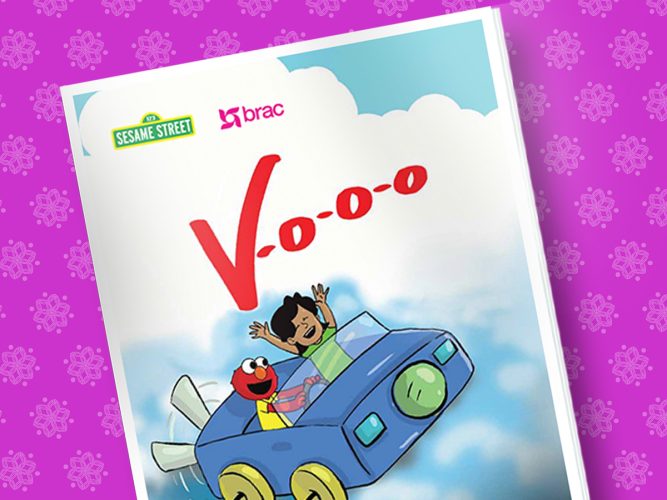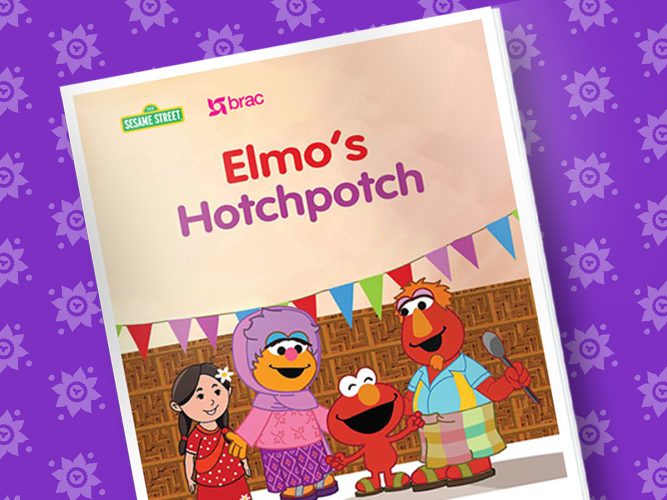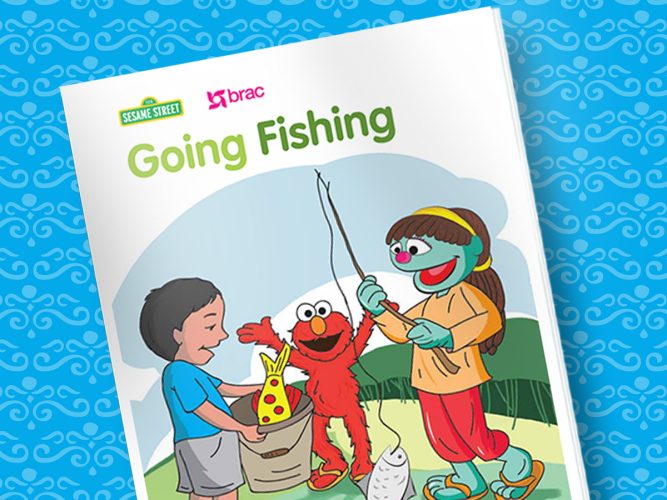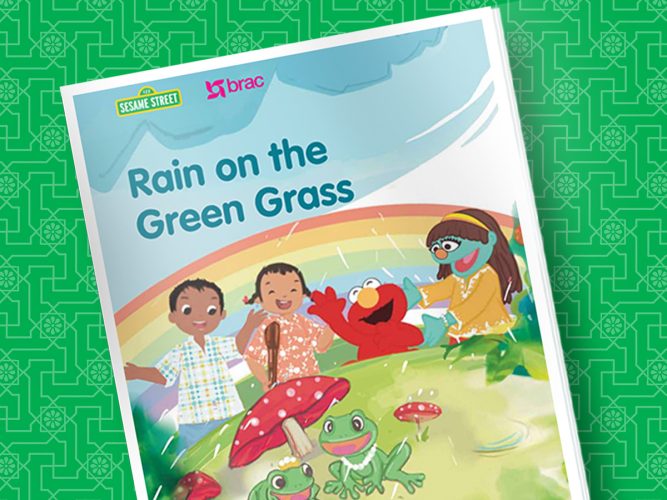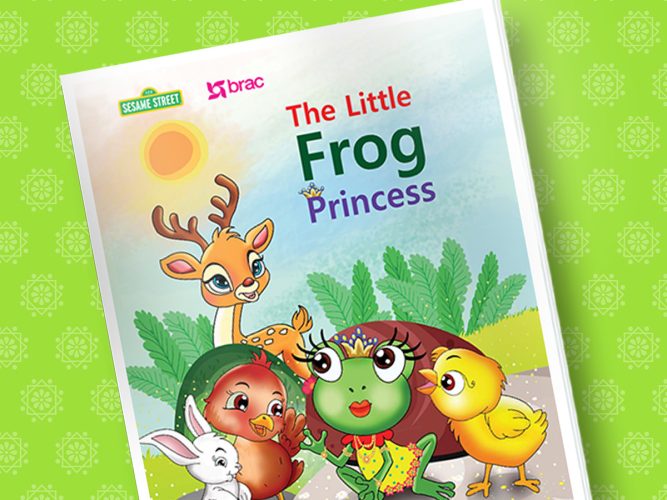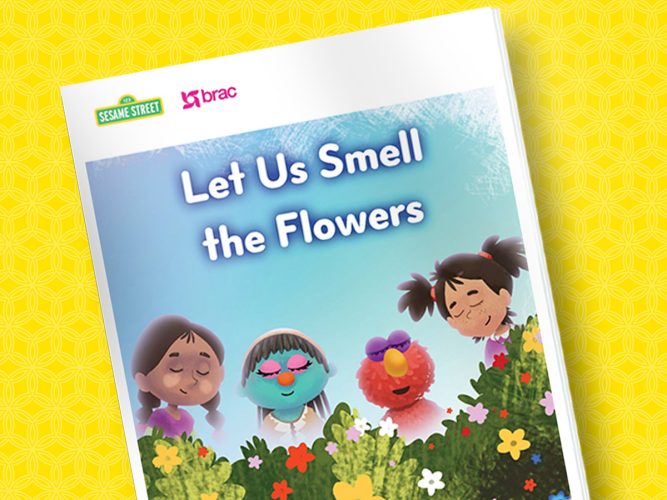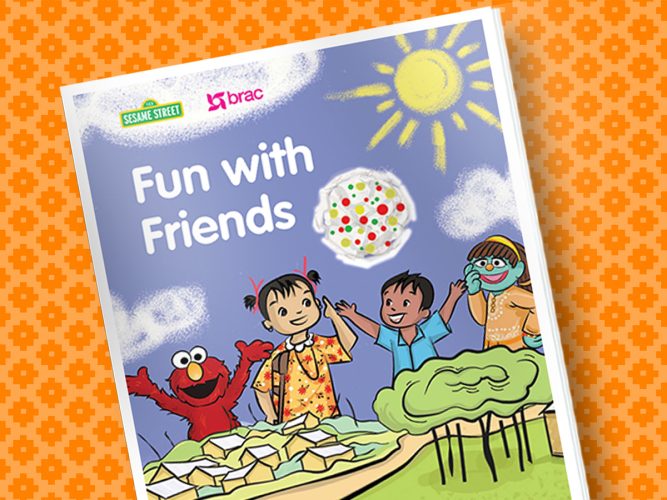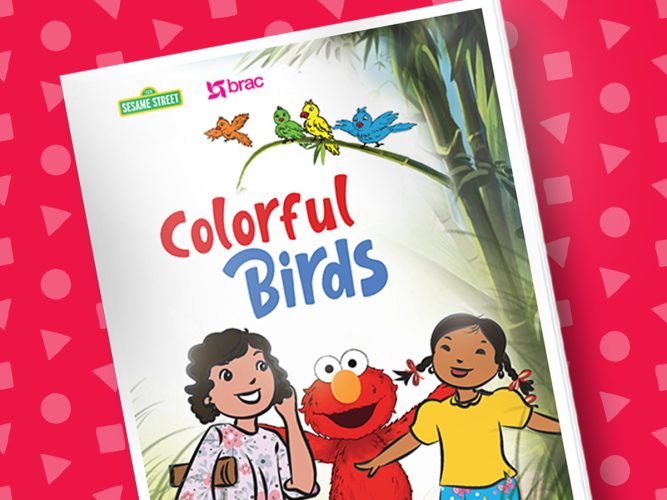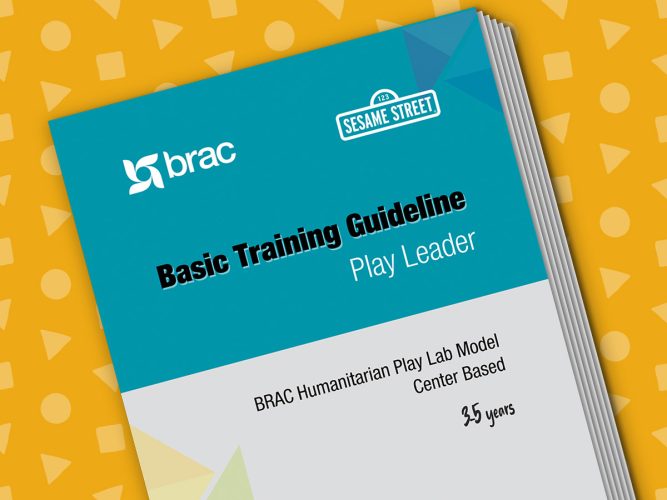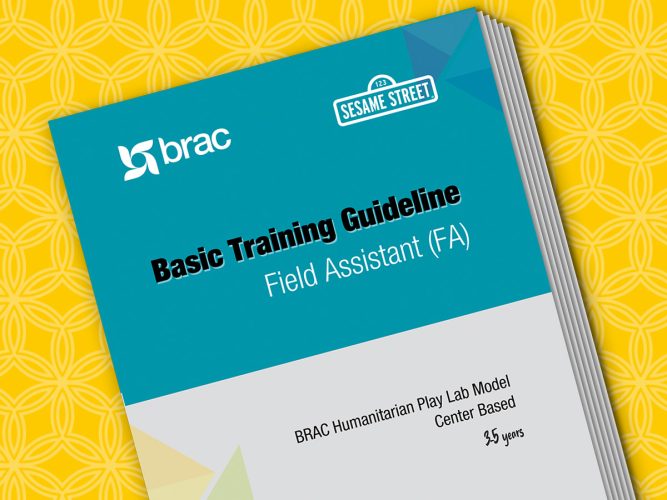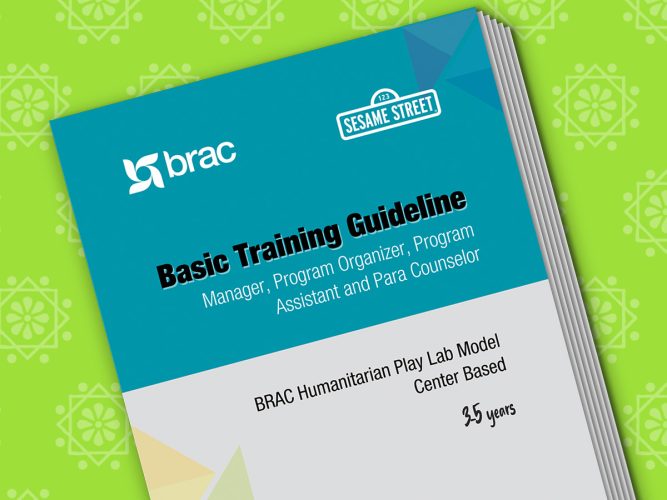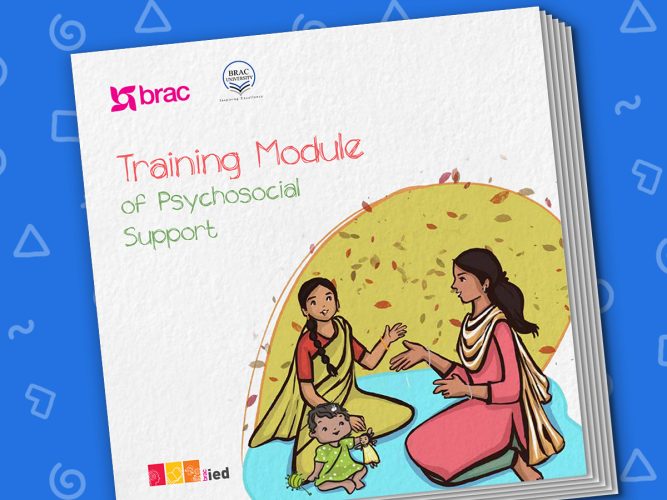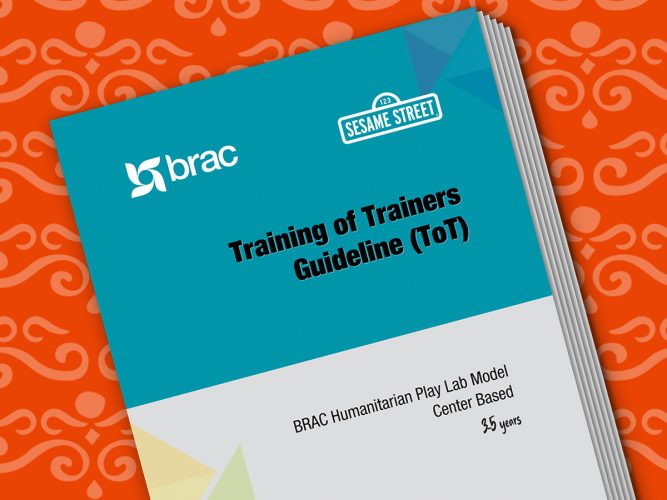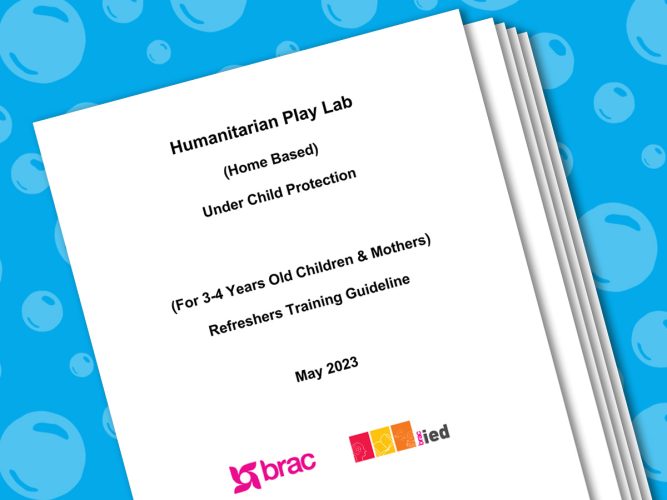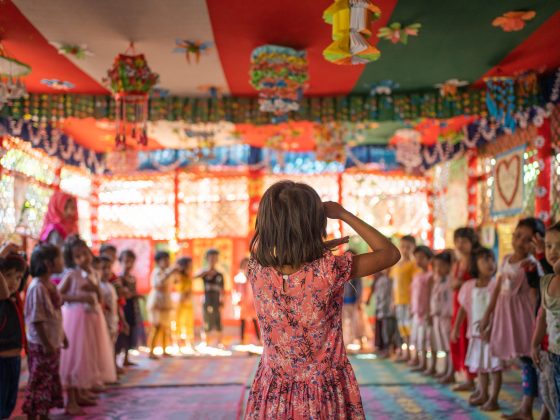
Humanitarian Play Lab
At Humanitarian Play Labs, Play Leaders and Project Assistants foster young children's development by engaging them in culturally grounded playful activities, such as kabbyas, kissas, physical play, and art.
A para-counsellor is attached to each of the centers to ensure the well-being of the children through observation and conversations with parents and community members.
Humanitarian Play Labs aim to:
- Provide children age 3-5 in crisis settings with play-based learning for their healing and well-being.
- Ensure that – through play – children develop their physical, cognitive, language, and social-emotional skills in a safe, joyful, and child-friendly environment.
- Help children build coping and resilience skills to foster their holistic development and well-being.
- Support children to develop positive attitudes, understand their emotions, and show empathy to others.
- Nurture children’s spontaneity through a play-based curriculum and support the development of their creative skills.
- Create spaces with Rohingya communities to share their thoughts, feelings, and opinions and foster their unique culture through co-created approaches and active community engagement.
- Create a supportive environment for children that extends to caregivers and the wider community.
Humanitarian Play Lab
Who we
worked with
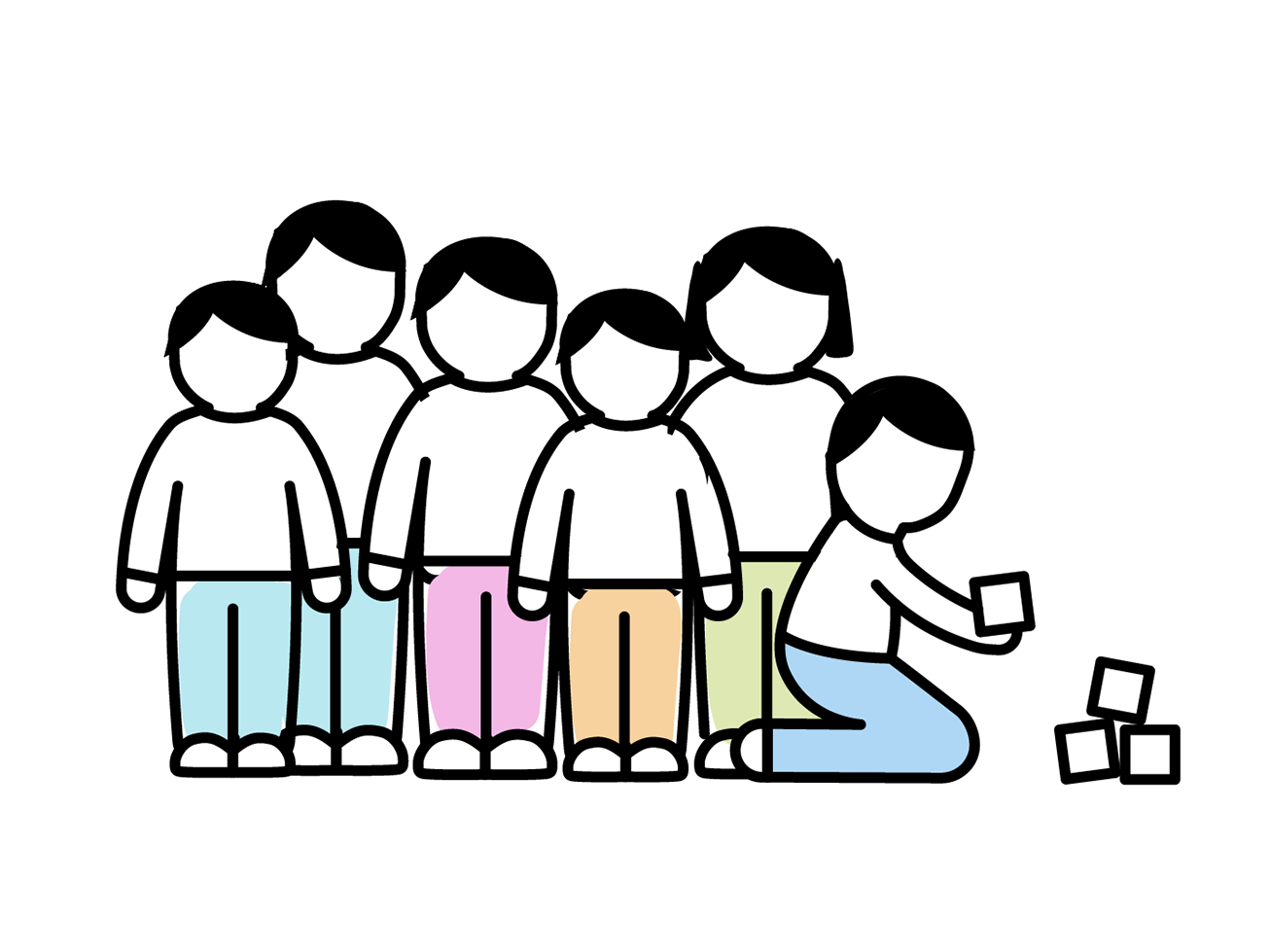
Children ages 3–5
who are refugees
Where we
worked
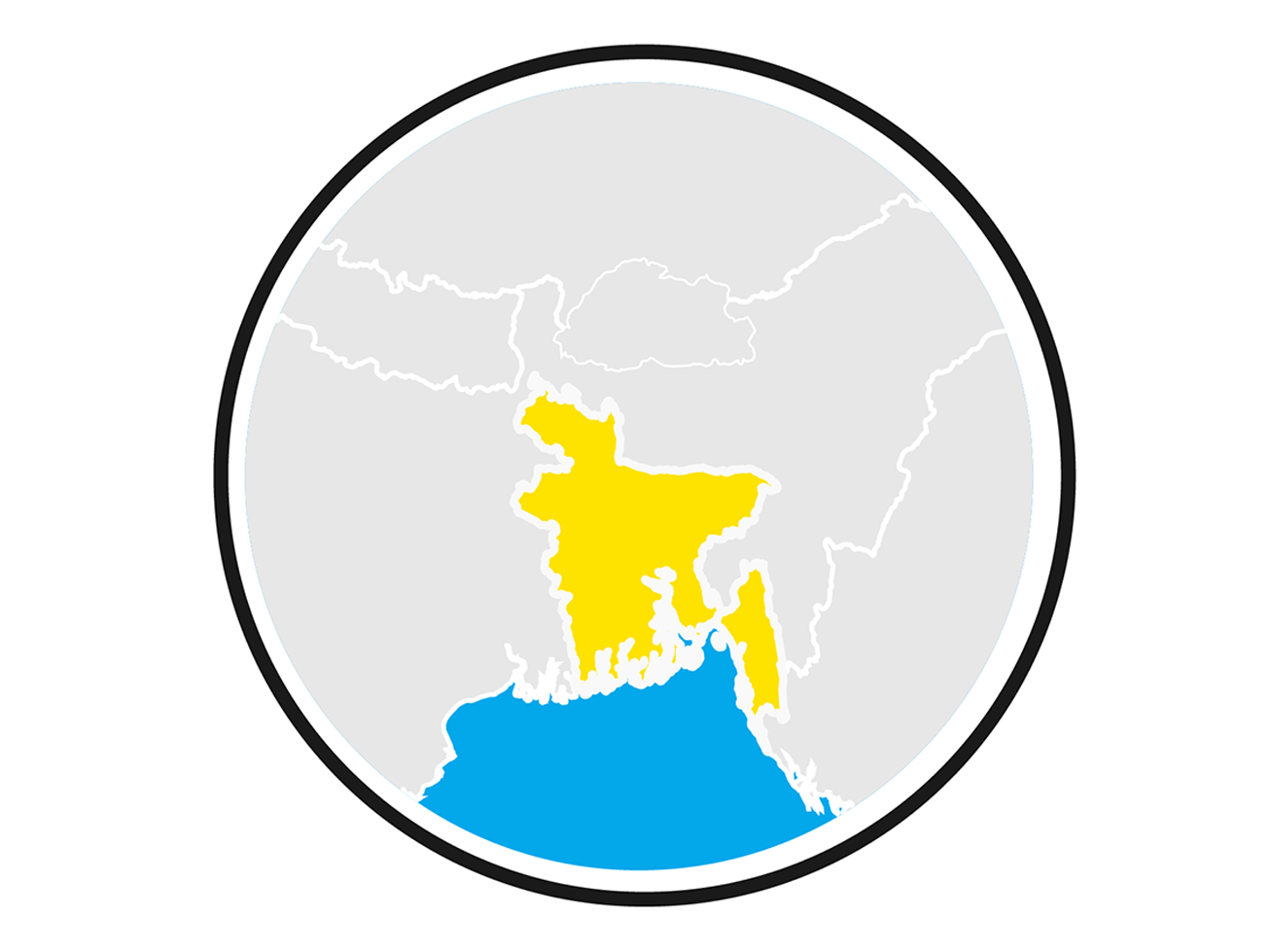
Bangladesh
How we delivered content
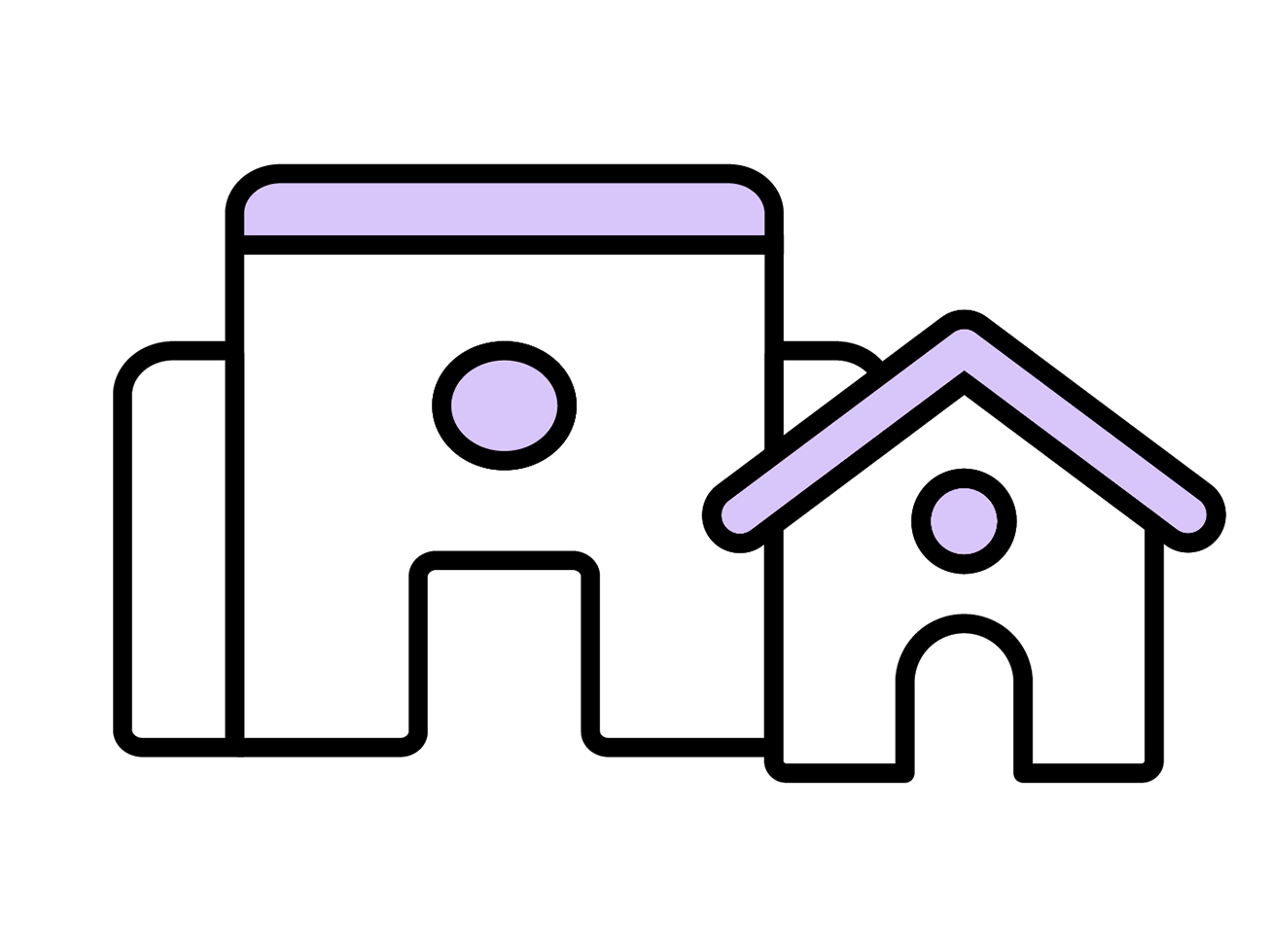
In person – facility & home
Play leaders and para-counsellors facilitate culturally grounded, playful activities
Frequency
.
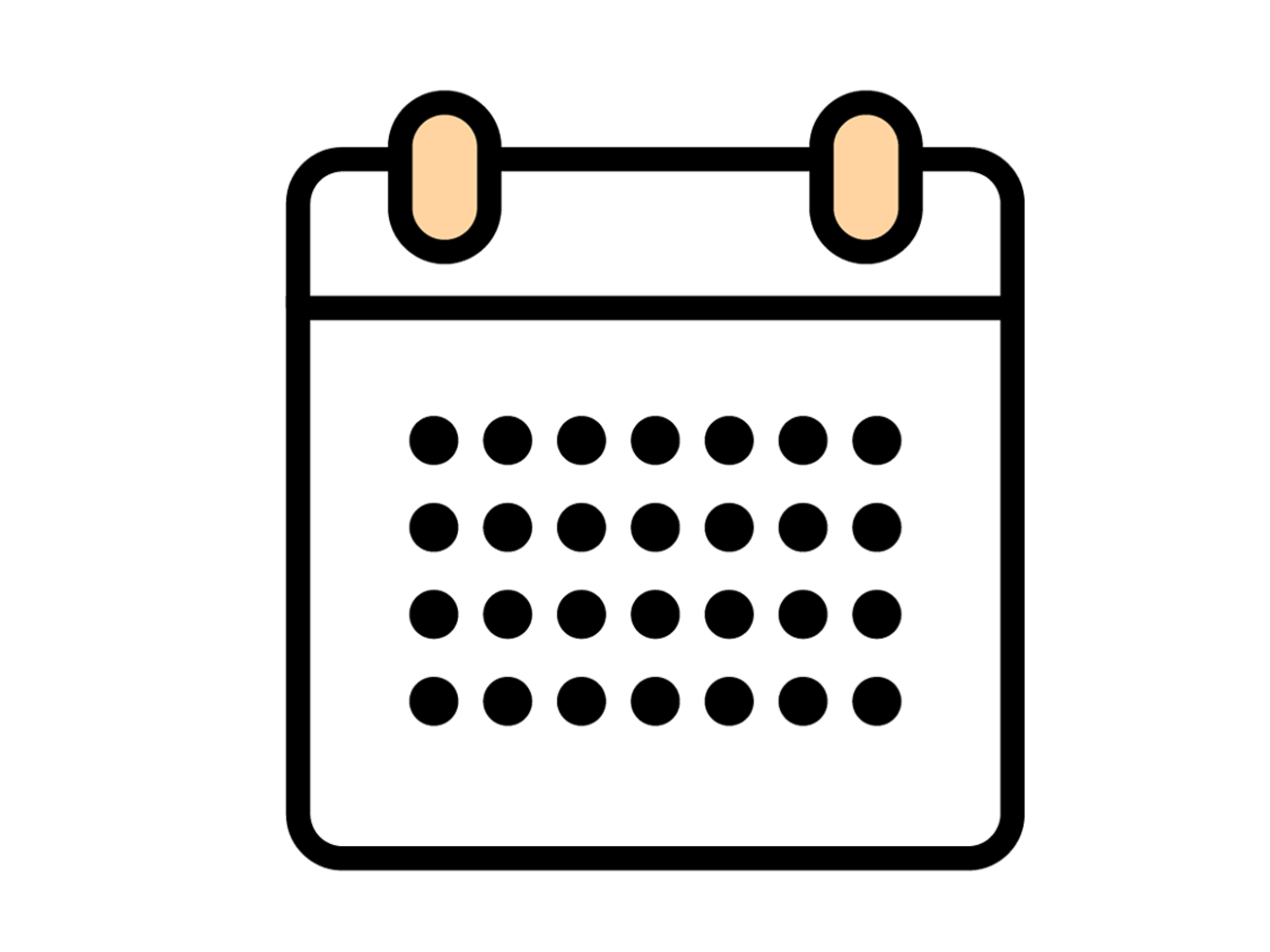
Scheduled
Delivered 2 hours a day, 5 days a week for 1 year
Program Content and Delivery
Play Leaders deliver a culturally relevant curriculum with play activities, flash cards, art and crafts, activity books, storybooks, and Watch, Play, Learn: Early Learning Videos. Themes encompass playfulness, communication, problem-solving, conflict resolution, self-regulation, social competence, and confidence building. Each two hour session follows a structured format, including “Time to Say Hello,” “Rhymes and Storytelling,” “Moving and Doing,” “Drawing and Creating,” “Play as You Wish,” “Watch, Play, Learn,” and “Time to Say Goodbye.”
Play Leaders use an approach characterized by active listening, empathy, non-judgment, and confidentiality. The center-based curriculum incorporates Rohingya cultural practices. Caregivers participate in monthly meetings on mental health, self-care, and interactions, and group sessions on well-being and child development. Community-driven design enhancements have helped to make the centers more culturally inclusive, emphasizing the importance of physical play in Rohingya children’s development. The home-based curriculum is adapted from the center-based curriculum, for use with smaller groups of children.
Culturally-relevant stories for Rohingya children used in Humanitarian Play Labs
Training and Supervision
This program relies on trained Play Leaders and Project Assistants, primarily from the Rohingya community, and para-counsellors who provide psychosocial support to children. Each center is staffed with two Play Leaders, overseen by a seven-person committee of Rohingya community members. This manual provides an overview of the staff structure and qualifications.
Para-counsellors, recruited from another program, support ten centers and make two to three visits daily to observe sessions and provide guidance to Play Leaders. BRAC staff receive a comprehensive training to become Master Trainers. Master Trainers conduct a five-day basic training program for staff and volunteers in Humanitarian Play Labs, as well as customized monthly refresher sessions.
Basic and refresher training guides for various staff who deliver Humanitarian Play Labs
Monitoring and Evaluation
BRAC collects data about registration, attendance, activities, referrals, and adherence to quality standards from Humanitarian Play Lab centers on a regular basis. This data, including children’s attendance and curriculum implementation quality, informs program implementation. Monitoring tools include observation checklists to evaluate interactions between Play Leaders and children, environmental conditions, and program alignment with its objectives. Monitoring Officers routinely collect and share this data with program staff for necessary adjustments.
A research team validated and/or adapted several quantitative outcome measurement tools for the program, covering areas such as child development and maternal psychological well-being. The research includes process documentation, qualitative implementation assessment, and impact evaluations on child development and maternal well-being.
Outcomes and Scale
106,705 Rohingya children
From 2019 to 2023, BRAC positive impacted over 100,000 Rohingya children age 3-6 through home- and center-based Humanitarian Play Labs.
73% of children
73% of children participated in center-based Humanitarian Play Labs achieved targets for physical, cognitive, creative, social, and emotional development in 2023.
99,147 caregivers
From 2019 to 2023, 99,147 caregivers participated in home- and center-based Humanitarian Play Labs in Cox’s Bazar, Bangladesh.
89% of caregivers
89% of surveyed caregivers surveyed who participated in center-based Humanitarian Play Labs in 2023 reported an increase in providing supportive interactions with their children.
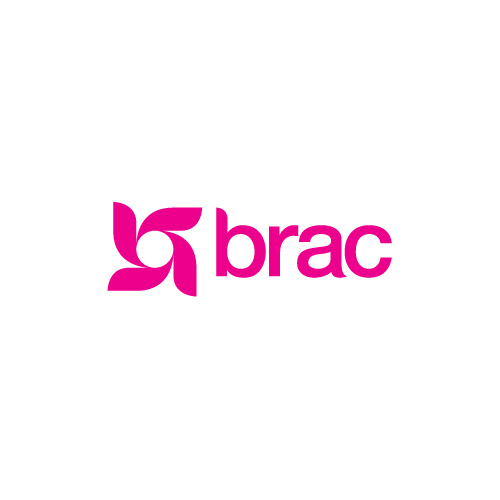
BRAC
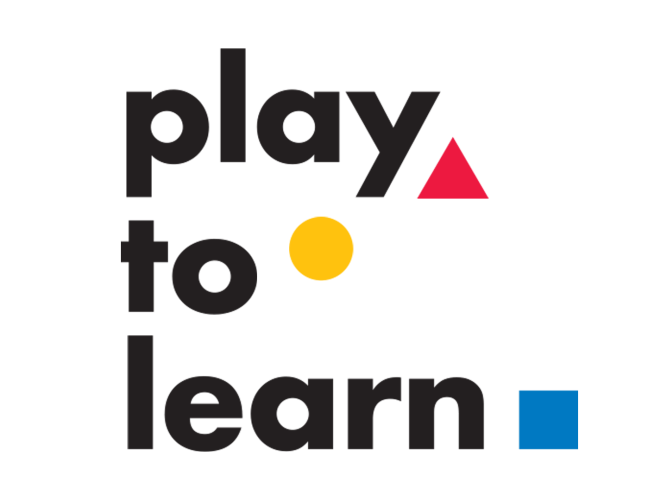
Play to Learn
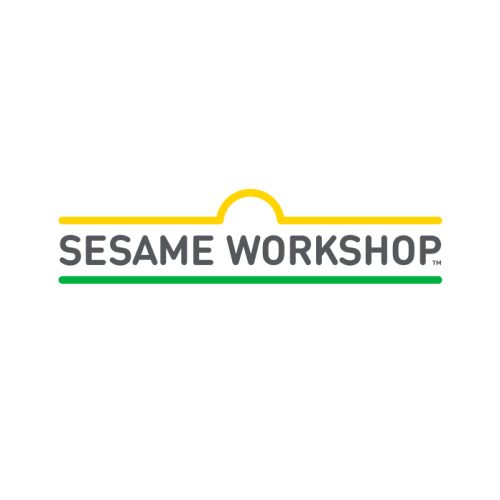
Sesame Workshop
